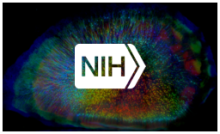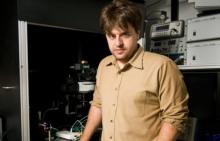
Dr. Hongkui Zeng received the Pradel Research Award and Dr. Karl Deisseroth received the Japan Prize in Life Sciences.
Advancing our understanding of the nervous system is crucial for improving human health and well-being. From understanding the basic biology, to developing new technologies for research and treatment, the field has wide ranging implications for human health. Recently, BRAIN-funded researchers and leaders in the field, Drs. Hongkui Zeng and Karl Deisseroth, were recognized for their significant contributions to advancing our understanding of the nervous system.

Hongkui Zeng, Ph.D., the Executive Vice President and Director of the Allen Institute for Brain Science, and a leading expert in molecular neuroscience, cell type diversity, and neuroanatomy, received the Pradel Award from the National Academy of Science. The Pradel Research Award recognizes major contributions to our understanding of the nervous system. Dr. Zeng was selected for the award for her crucial work on advancing our understanding of cell type diversity and connectivity in the mammalian brain and for her leadership in developing open data resources and novel neuroscience tools. Through her NIH BRAIN grants (1U01MH105982 and 1U19MH114830), Dr. Zeng worked with her team to produce comprehensive anatomical cell census data from brains of adult male and female mice, demonstrated in a recent Cell publication. In her current work on BRAIN Initiative Cell Atlas Network (BICAN) projects, Dr. Zeng is working to create a comprehensive cell atlas of the human and closely related non-human primate brain using high-throughput single cell molecular, spatial and cell phenotyping assays.

Photo Credit: Stanford Medicine, 2016
Karl Deisseroth, M.D., Ph.D., the D.H. Chen Professor of Bioengineering and of Psychiatry and Behavioral Sciences at Stanford University, and Howard Hughes Medical Institute Investigator, received the 2023 Japan Prize in Life Sciences. The Japan Prize is an international award given by the Japan Prize Foundation, honoring scientists and researchers worldwide for their significant contributions to peace and prosperity through their advancements in science in technology. Dr. Deisseroth was selected for his trailblazing work on the development of tools and methods that rely on genetically encoded light-sensitive membrane proteins to understand how neuronal circuits function. Through his NIH BRAIN grant Dr. Deisseroth is working to establish a principled theory of the relationship between internal neural states and our mental lives moment by moment. Dr. Deisseroth served on the original BRAIN Initiative Working Group of the Advisory Committee to the NIH Director (ACD), which developed a rigorous plan for the BRAIN Initiative known as the BRAIN 2025 Report; he served on the follow-up ACD BRAIN Initiative Working Group 2.0, which produced the strategic BRAIN 2.0 Report; and he is a current member of the BRAIN Multi-Council Working Group, which provides ongoing oversight of the long-term scientific vision of the NIH BRAIN Initiative.
